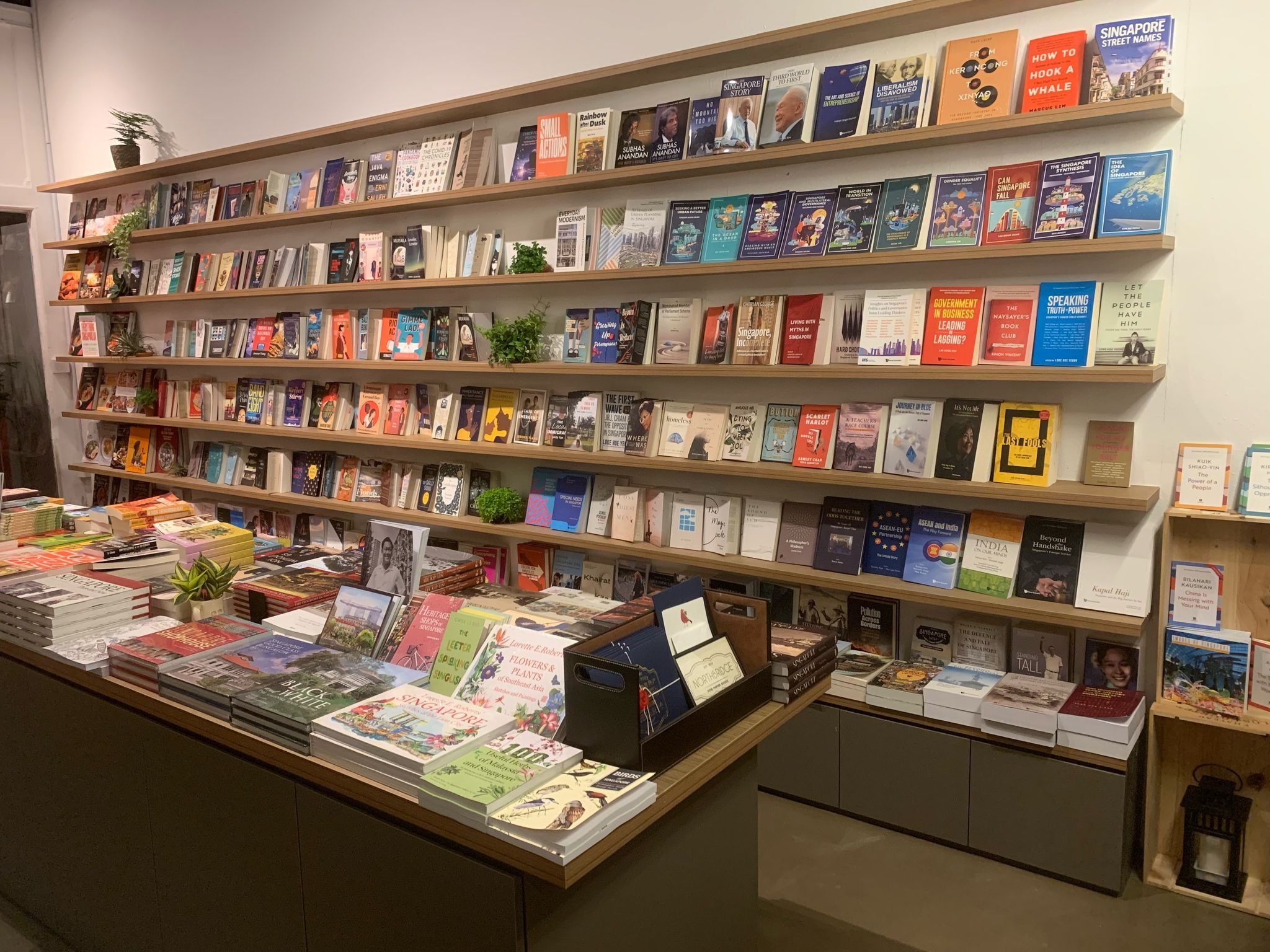HOW WE READ PODCAST
The notion of technology opening up new spaces for reading is not new. From the Gutenberg Press to Project Gutenberg, the history of reading has been punctuated by projects dedicated to expanding the reach of books through technological innovation. Technological innovation has also seen the expansion of communities of reading, across physical and virtual spaces. In series 2 of the How We Read podcast, we explore the transformed technologies and communities of reading.
image credits to Alex Chua of Book Bar
S2E1: Do We Still Need Physical Bookstores?
Rent and rising costs are perennial issues for bookstores that have to compete with e-books and online vendors. How will physical bookstores survive? What forms of technology and tricks of the trade can they turn to improve profits and sustainability? And do we still need physical bookstores?
Episode Guests:
Ibrahim Tahir, Founder of Wardah Books
Alex Chua, co-founder of Book Bar
Sung Yuen Ling, Manager of Maha Yuyi
Recommended Reads:
S2E2: The Social Life of Book Clubs
Despite laments about the decline of reading, book clubs are having a renaissance moment in Singapore. Who goes to book clubs and why do they attend these sessions? What do the popularity of book clubs tell us about reading in this day and age?
Episode Guests:
Alex Chua, co-founder of Book Bar
Ibrahim Tahir, Founder of Wardah Books
Myra Garces-Bascal, Assistant Dean for Research and Graduate Studies, Associate Professor, United Arab Emirates University
Gan Sujia, PhD Student, National Institute of Education
Recommended Reads:
image credits to AFCC
S2E3: Building Reading Communities
One way to building a national reading community is to create a vibrant reading community that celebrates national literature. This first episode of the 2nd season of the HWR podcast examines the work of the Singapore Book Council and National Book Development Board in developing local and regional initiatives around books and reading.
Episode Guests:
Charisse Aquino-Tugade, cultural worker, Executive Director, National Book Development Board (NBDB), The Philippines
William Phuan, Executive Director, Singapore Book Council
Reccommended Reads:
image credits to Charisse Aquino-Tugade of NBDB
S2E3 Bonus: Charisse Aquino-Tugade
In this bonus episode, Charisse Aquino Tugade, cultural worker and Executive Director of the National Book Development Board of the Philippines (NBDB), explains how the NBDB spearheads reading access and representation. Amid challenges faced by the publishing industry, Charisse shares innovative strategies for enhancing reading access and supporting Indigenous communities.
Episode Guest:
Charisse Aquino-Tugade, cultural worker, Executive Director, National Book Development Board (NBDB), The Philippines
image is AI generated by Gemini
S2E4: Reading and AI
With the rise of Generative Artificial Intelligence, some folks have suggested that a good prompt and internet access are all that is required to write a good story. How has technology changed the way we read? What implications are there for writing and publishing?
Episode Guests:
Professor Simon Chesterman, David Marshall Professor of Law & Vice Provost (Educational Innovation), National University of Singapore
Neil Humphreys, Author, Columnist
Chang Qizhong, Lecturer, English Language & Literature, National Institute of Education
Recommended Reads:
Fact check acknowledgements: Dr Chang Qizhong & Professor Looi Chee Kit
image credits to Neil Humphreys
S2E4 Bonus: Neil Humphreys
In this bonus episode, author Neil Humphreys shares insights on his diverse writing journey across fiction, non-fiction, and children's literature, emphasising the importance of finding a unique voice amid the evolving landscape of reading and emergence of AI. He discusses the challenges writers face today and the vital connection between reading habits and creative expression.
Episode Guest:
Neil Humphreys, Author, Columnist
image credits to Simon Chesterman
S2E4 Bonus: Simon Chesterman
In this bonus episode, Professor Simon Chesterman discusses the intersection of law, fiction, and artificial intelligence. From legal reading strategies to the future of literacy in an AI-driven world, he explores how reading and writing shape critical thinking and empathy.
Episode Guest:
Professor Simon Chesterman, David Marshall Professor of Law & Vice Provost (Educational Innovation), National University of Singapore






